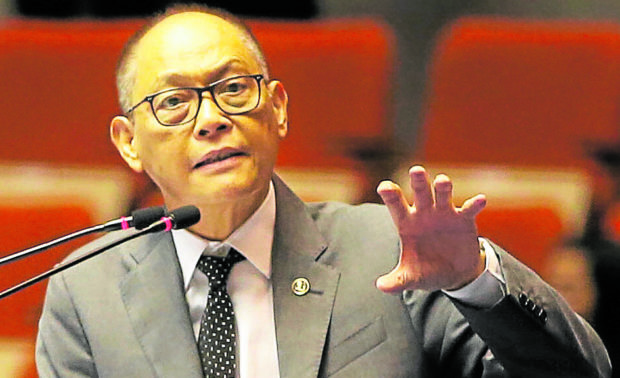The proposed Bank Deposits Secrecy Law currently being deliberated on by Congress will help regulators protect the local financial system from misuse for fraud and other crimes while amply protecting the rights of everyday Filipinos, the central bank said.
In an online briefing, Bangko Sentral ng Pilipinas (BSP) Governor Benjamin Diokno laid out a list of measures aimed at preventing the abuse of the enhanced powers the bill would give to bank examiners, including strict limits on the use of deposit information.
“The results of the inquiry and examination by the BSP shall be for the exclusive use of the BSP,” he said. “They shall not be made available to any person or entity, except to the Securities and Exchange Commission, Philippine Deposit Insurance Corporation, Anti- Money Laundering Council, Department of Justice and the courts, provided that the sharing of the results of the said inquiry or examination is necessary to prevent or prosecute any offense or crime.”
The central bank chief explained that, under the BSP’s version of the proposed law, any inquiry would be limited to the deposit account of the stockholder, owner, director, trustee, officer or employee of an entity that was subject to the supervision or regulatory power of the BSP, the representative or agent, the related party, or any of the conspirators of the person involved in the commission of fraud, serious irregularity or unlawful activity.
The grounds for inquiry or examination of bank deposits are in the exercise of BSP’s supervisory powers, upon determination by the Monetary Board that there is reasonable ground to believe that a fraud, serious irregularity or unlawful activity has been or is being committed by the specified persons; and it is necessary to look into the deposit to establish such fraud, irregularity or unlawful activity; and in the course of its investigation of closed banks.
More importantly, Diokno said the proposed law would give regulators the ability to look into foreign currency deposits in banks operating in the Philippines including off-shore branches of domestic banks—a section of the banking industry that was previously off limits to regulators due to strict provisions of a Marcos-era law governing it.
The proposed law also gives protection to banks and financial institutions against frivolous suits from depositors in connection with the inquiry and examination of deposits by the BSP; and considers as unlawful its use “for persecution or harassment or as an instrument to hamper competition in trade and commerce.”
“The passage of the bill is seen to have wide-ranging beneficial impact,” Diokno said. “The bill enhances the BSP’s capacity to fulfill its mandate of promoting the safety and soundness of the banking system.”
“Compliance with international standards on transparency will bolster the public and the global community’s trust in the domestic banking system,” he added. “Reforms in deposit secrecy will support the country’s efforts to combat domestic and global tax evasion, money laundering, and other financial crimes.” INQ
